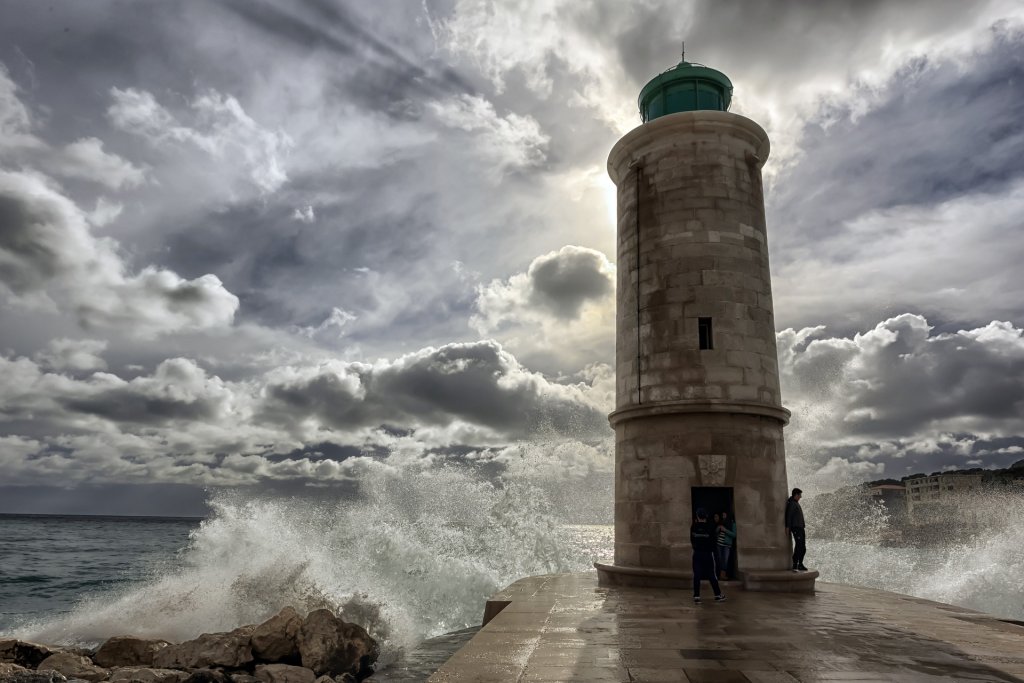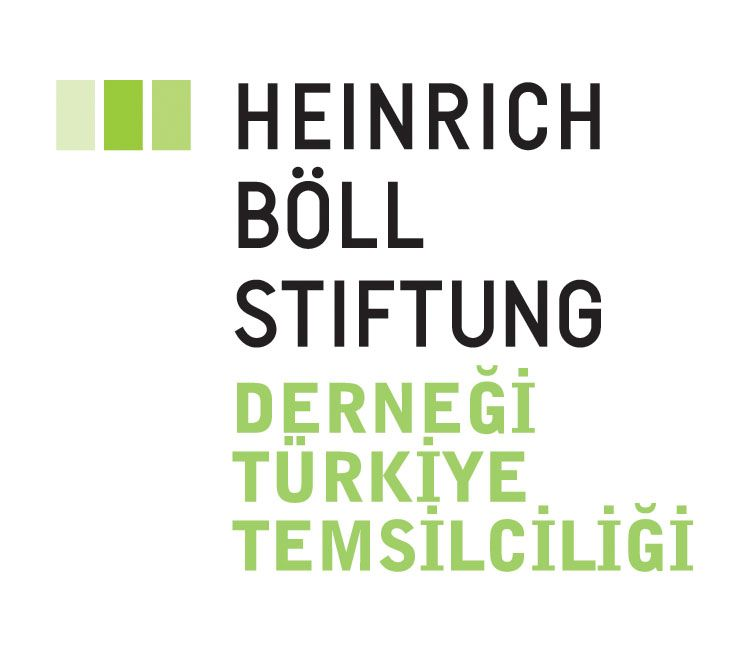
The sanctions imposed by Western actors in response to Russia’s annexation and occupation of part of Ukrainian territory have moved up energy security in the global agenda. The general expectation after the referendums aimed at legitimizing the annexation of eastern Ukraine into Russia is that the tension will last long and include the possibility of nuclear war. This situation, combined with using the energy card as a weapon by Russia, Europe’s largest energy supplier, has brought the topics of returning to alternative energy sources and energy diversification into the debate again.
While European actors prioritize accelerating the transition to renewable energy sources, turning to alternative energy/natural gas sources is also one of the goals. In this context, the supply of more liquefied natural gas (LNG) from providers such as the US and Norway, bringing Caspian and Central Asian gas to the agenda, and the tightening of relations with North African partners such as Libya and Algeria were the first alternatives that came to mind. Data from the International Energy Agency indicates that Europe’s LNG imports will increase by 60 billion cubic meters this year. Another possible source that draws attention to this equation and closely concerns Turkey is the Eastern Mediterranean.
Does Eastern Mediterranean Gas Flow to the European Market?
With the agreement signed between the EU, Egypt, and Israel on 17 June 2022, it was agreed to deliver Egyptian and Israeli gas to the European market as LNG through Egypt. This agreement also envisaged renewable energy, the use of hydrogen, increasing energy efficiency, and developing electricity networks throughout the Mediterranean. The deal means a new and different dimension after the EU and the US withdrew their support in 2021 from constructing the Eastern Mediterranean Pipeline, considered the region’s most strategic project, due to technical and commercial limitations. While this step opens up a new perspective on Europe’s energy security, the fact that it is moving away from Ankara’s energy, foreign, and security discourses and policies is also apparent.
The story began in the mid-2000s with the discovery of natural gas deposits in the Eastern Mediterranean. Ankara considered it a development compatible with common interests that would initially serve Turkey and Europe’s energy security and diversity. It was thought that the transportation of Eastern Mediterranean resources through Turkey to the European markets would contribute to meeting Turkey’s needs and turn Turkey into a kind of regional energy hub. This line, alongside supporting Northern Iraqi and Azerbaijani resources, was significant for ensuring diversity. However, it was rapidly reversed due to the developments in Syria under the influence of the deterioration in Turkish-Israeli relations and the general tension created by the Arab uprisings in the region. While the cold weather in Ankara’s relations with the EU and the US has turned Turkey’s EU adventure in the opposite direction, the increasing tension with Greece and the lack of a solution to the Cyprus problem have turned the Eastern Mediterranean from an issue of regional cooperation for Ankara into a clear competition arena.
Exclusive Economic Zone (EEZ) agreements were signed between the relevant countries after the discovery of Egypt of the 850 billion cubic meters of Zohr deposits in 2015 -added to the already found deposits off the coast of Cyprus and Israel- leaving Ankara out. This development moved the issue into the area of sharing maritime jurisdiction. Moreover, initiatives such as the Eastern Mediterranean Gas Forum (EMGF), which marginalized Ankara by excluding it, also brought the competition to the strategic level. This initiative was created in January 2019 with the participation of Greece, the Greek Cypriot Administration, Israel, Italy, Jordan, and Palestine, hosted by Egypt. The Forum was an essential step in the context of regional actors such as Israel, Jordan, and even Palestine, which had not previously established relations with the Greek Cypriot Administration by considering their relations with Turkey, thus opening new channels of cooperation without Turkey, even despite Turkey.
The concrete results of the collaboration within the framework of the Forum, which took place without Turkey, began to emerge in approximately three years. The momentum created by this step, which can also be seen as the depth of the isolation of Turkey, led to the establishment of military and security cooperation platforms between the countries mentioned above. This became the latest stage of a process in which Turkey is isolated and regional balances are shaped contrary to Turkey’s expectations with the developments in the Middle East, mainly focused on Syria.
While Egypt’s transformation into a net natural gas exporter since 2018 and the start of supplying gas to Israel will shift the focus in the Eastern Mediterranean equation to Cairo. The Eastern Mediterranean gas will probably enter the European market as LNG through Egypt from the winter of 2022. Meanwhile, the biggest customer of Egyptian LNG from the last quarter of 2021 was Ankara. This alone is enough to fundamentally question Ankara’s Eastern Mediterranean-oriented energy and security policies of the previous ten years, which aimed to become an energy hub in its region. The possibility of Eastern Mediterranean gas flowing into international markets as a result of new agreements, leaving out Turkey, the most significant consumer and importer in the region, will mean that one of the essential pillars of the policy of becoming a regional energy hub will be lost.
Understanding Ankara’s Agenda
Ankara has used different means of foreign policy, including military dimension and escalation, to overcome the regional exclusion it faced during this period. First, it increased its visibility in Libya and signed maritime jurisdiction delimitation and cooperation agreements with that country. Despite the reactions of Greece and France, joint oil and gas exploration activities have been undertaken off the coast of Libya. Finally, a memorandum of understanding was signed on 3 October 2022, stipulating cooperation between the countries in petroleum energy and hydrocarbons.
In the same period, Turkey’s infrastructure was developed in the Mediterranean to enable energy exploration by scanning and mapping marine areas. As of 2017, four drilling vessels named Fatih, Yavuz, Kanuni, and Abdülhamid Han have been added to the seismic research vessels called Barbaros Hayreddin Paşa and MTA Oruç Reis, which were introduced into the system in 2012 and 2017. Thus, an exploration and drilling fleet has been created. Following this, intensive seismic dredging and drilling activity was undertaken in the maritime areas of Turkey in the Black Sea and the Mediterranean.
This mobility, which we can consider Turkey’s attempt to change the balance and open a new area for itself in the game, has clarified itself with the approach of exercising legal rights in the sea areas defined as Blue Homeland (Mavi Vatan) since 2006. In response to the Eastern Mediterranean Energy Forum and other military cooperation initiatives that exclude Turkey, Turkey’s letter to the UN on 18 March 2019, which defined the borders of its maritime areas as the country with the longest coastal line in the Eastern Mediterranean, and made it clear that it would protect this with the naval forces it sent to the region, was evaluated as preferring coercive diplomacy in the Mediterranean balances.
Despite all these steps, the process has not progressed in line with Ankara’s expectations. Its exclusion from regional structures such as the Energy Forum continues, and it has not been able to convince its regional/global interlocutors about the legitimacy of the approach it follows. In this environment, steps are being taken to open a new page in foreign policy. It is unclear whether these steps will meet expectations or produce results. Although the stage of mutually appointing an ambassador to Israel has been reached, concrete gains have not yet been achieved in other areas. Relations with Egypt are uncertain. While the tension with Greece extended to the Aegean with an atmosphere of elections on both sides, the US signed additional agreements with Greece to increase its military activity in this country and lifted the arms embargo that has been active since 1987 against the Greek Cypriot Administration. While these caused significant discomfort in Ankara, they also indicate that Turkey’s isolation in the region is not decreasing but, on the contrary, increasing. Turkey’s continued tensions with the EU and some member states also presage a situation that increases despair.
Is a Return to Collaborative Relationships Possible?
It is possible to say that the Eastern Mediterranean is no longer a problem that concerns only the Mediterranean region but has turned into a ‘new’ area of global competition that draws in the US and the EU. In this context, Turkey is seen as an uncompromising and coercive actor, while it continues to be an influential game-changer. This role needs to be transformed into a constructive actor to get quick results. Otherwise, Turkey’s regional exclusion will become increasingly standardized and settled.
Despite all kinds of contradictions, the priority should be to re-promote cooperation by creating areas of common interest between Ankara and other regional actors through negotiations. In the current circumstances, this is the sole remedy. Beyond the tension Turkey is experiencing with the regional countries over the sharing of maritime areas, the economic and trade relations it has established/will establish, especially in the region, can turn the process from competition to cooperation. Discourses and policies emphasizing common interests regarding energy needs and diversification may also address regional relations constructively.
Considering that the tension with Russia in the north cannot be resolved in the short term and tensions continue to exist between the allies in different areas, the meaninglessness of spending energy on the competition can be explained more understandably. In this context, the EU and the US, too, must adopt an attitude that prioritizes cooperation rather than encouraging tensions between Ankara and Athens. It is a must for regional stability and security that they move away from the appearance of provoking Turkey and taking a side against Ankara, which should encourage the parties to find a solution through negotiations, avoiding conflict. Without this, the results of Turkey’s unilateral efforts will be limited.

Mitat Çelikpala, Prof. Dr., Kadir Has University
Prof. Dr. Mitat Çelikpala is a faculty member at Kadir Has University, Department of International Relations. Çelikpala’s areas of work include the former Soviet geography and the Caucasus, diaspora studies, the Black Sea Region and its security, Turkish-Russian relations, energy security, critical infrastructure security and the fight against terrorism. He completed his undergraduate education at METU, his master’s degree at Hacettepe, and his doctoral study at Bilkent University. Oxford University St. A Senior Associate Member at Antony’s College and a member of the EDAM Board of Directors, Çelikpala is an academic advisor at NATO Anti-Terrorism Center of Excellence, Turkish Armed Forces Strategic Research Center (SAREM), Ministry of Foreign Affairs Strategic Research Center, as well as various international institutions, think tanks and companies. Çelikpala has articles and reviews published in academic journals and current media on the above-mentioned issues
To cite this work: Mitat Çelikpala, “”Energy and the Potential for Cooperation in the Eastern Mediterranean”, Panorama, Online, 17 December 2022, https://www.uikpanorama.com/blog/2022/12/17/mc/

This article has been prepared with the support provided to the International Relations Council and the Global Academy by the Heinrich Böll Stiftung Association Turkey Representative within the scope of the project titled ‘Foreign Policy for the 21st Century; Peaceful, Equitable, and Dynamic Turkey’.
Copyright@UIKPanorama. All on-line and print rights reserved. Opinions expressed in works published by the Panorama belongs to the authors alone unless otherwise stated, and do not imply endorsement by the IRCT, Global Academy, or the Editors/Editorial Board of Panorama.

